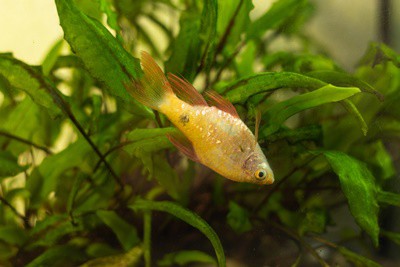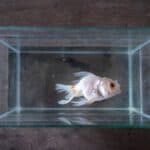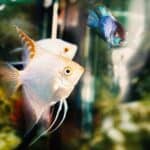There’s long been a belief that fish don’t feel pain or experience emotions. As fish spend their time with their tankmates, you may wonder if they realize if another fish dies.
Scientific studies suggest that fish form attachments with familiar fish and are more likely to associate with them than other tankmates.
Fish also feel less afraid when they’re in same-species schools. Some fish display sadness and loneliness when another dies, losing their appetite, becoming lethargic, and swimming at the bottom of a tank.
Most fish thrive when they live with companions or in small groups. If the death of a fish means the surviving fish is alone, consider finding it a companion to reduce negative feelings.
Do Fish Get Sad When Other Fish Die?
Sadness is an emotion that humans and sentient animals feel.
Historically, it was believed that fish don’t feel pain and emotion. However, recent studies suggest that fish are sentient animals with individual personalities. They also form bonds with other fish.
According to Scientific Reports, researchers observed the social buffering behavior of zebrafish and discovered they share traits similar to humans and mammals.
By exposing zebrafish to threatening situations, researchers have found that zebrafish in groups feel less afraid than when kept alone.
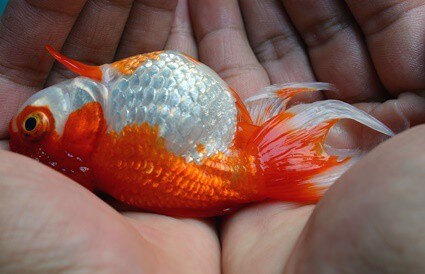
In another study by the Journal of Ethology, scientists discovered that rainbowfish could identify and distinguish between other fish when faced with predatory situations.
Those fish chose to associate with familiar fish rather than strangers.
While it’s difficult to determine whether fish feel the equivalent of human sadness when members of their group die, it certainly affects them. Fewer fish in the school means they’re more likely to get eaten.
Scientific Reports have discovered that fish experience emotion-like states based on their environmental stimuli. Therefore, it’s likely that fish recognize when familiar fish are absent.
However, there’s a counter-argument to this. If the fish in your tank starts behaving strangely after the death of your fish, it might not be due to sadness but a chemical reaction. Some fish release a chemical substance called schreckstoff when they’re distressed.
If a fish has died of injury, predation, or disease, it releases a chemical, alerting its tankmates of danger. Consequently, the surviving fish start behaving as if a predator is nearby. They do the following:
- Dart quickly back and forth.
- Freeze in place.
- Stop swimming.
- Hide among plants.
- Lose their appetite.
Humans interpret this behavior as grief, but the fish are trying to protect themselves.
Do Fish Get Lonely If One Dies?
Few wild fish species live alone. Many fish, including angelfish, catfish, and tetras, live in large schools, gliding through the water together.
We’ve explained how some fish can recognize their tankmates. If they’ve formed an attachment to another fish, they’ll become lonely due to a lack of stimulation once their “friend” dies.
If a fish is lonely, it’ll display the following signs:
- Lack of reaction when it sees you.
- Lethargic behavior.
- Swimming at the bottom of the tank.
- Refusal to eat.
Fish need mental, social, and emotional stimulation to stay happy and healthy. Without it, they’ll swim around the tank without purpose, displaying signs of boredom.
This is amplified when you only have two fish in the tank, leaving one alone. Loneliness also causes stress, which kills fish.
Similar to feelings of sadness, some fish may feel lonely in a more practical sense.
Some fish species must form large groups to feel safe and secure. They also enjoy swimming around together as it provides mental enrichment.
Loneliness kills vulnerable fish and prevents them from schooling.
Which Fish Are Most Likely To Know When Other Fish Die?
We’ve established that some fish can recognize when another dies.
While more research is needed in this area, specific fish species display signs of loneliness and depression more than others when one of their tankmates dies.
The fish most likely to mourn include:
Guppies
Guppies aren’t schooling fish, but they like company. Guppies have earned the nickname “million fish” because they breed fast. Guppies breed all year round, mating with numerous males.
Consequently, guppies perform poorly on their own and notice when other fish aren’t around anymore.
While females produce offspring for about 8 months with a male’s sperm stashed in her body, she’ll need a male fish to mate with after this time.
Angelfish
Angelfish do poorly alone and need to live in pairs or groups of even numbers.
Some angelfish develop long-term partnerships and become territorial. When one dies, the other becomes sad and depressed, refusing to eat.
Similarly, when an angelfish dies, the entire group notices the absence.
Due to the uneven number, the dominant fish will turn on the smaller, more submissive angelfish, bullying it and engaging in a fight.
An angelfish dying allows the group to readdress the hierarchy within the tank.
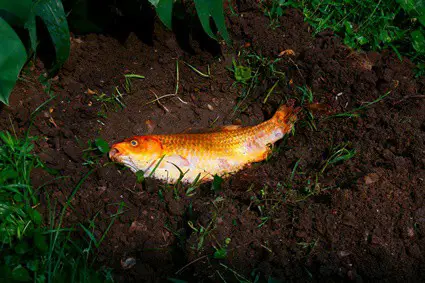
Discus
Discus fish is a breed that must live in small groups of its kind.
They’re peaceful, shy fish that form attachments to other discus fish in the tank. When living alone, they become lonely and stressed. Similarly, they’re affected by another discus’ death.
The only time discus fish live alone is in the breeding phase. At this time, they’ll isolate themselves. Even when the fish has given birth, it rejoins the group.
When a discus fish dies, you’ll notice that the rest of the group lose their appetite and become lethargic. This is a normal reaction to the fish’s death, but you must monitor this behavior.
Platies
Platies aren’t schooling fish but enjoy living in groups.
They’re peaceful and active and rarely become aggressive towards each other. They’re also similar to discus fish because they breed quickly, so male and female platies spend lots of time mating.
Because of their social nature, platies form attachments to each other and don’t do well on their own.
They’re likely to notice the absence of dead fish more than other species. When a platy dies, the surviving fish may refuse to eat for a few days, so hand-feed them to encourage them to feed.
Because we can’t be sure whether fish mourn, you must observe your surviving fish for signs of depression, stress, or loneliness.
If the fish lose their appetite or stop swimming, the death of their tankmate has likely affected them. In that case, provide some form of mental enrichment to minimize feelings of sadness.

